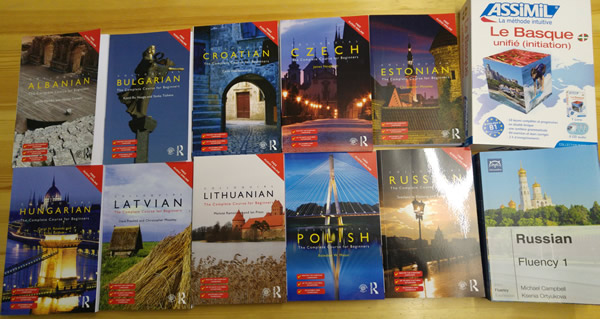Last night I had an interesting chat with an Estonian student who is studying in Bangor about Estonia and the Estonian language. I knew a little about the language already, but realised that I didn’t know any words or phrases in Estonian, apart from its native name – eesti keel – and I wasn’t even sure how to pronounce that: [eːsti.keːl].
When I meet someone who speaks a language I haven’t studied, yet, quite often I know at least how to say hello or other phrases in their language, which usually impresses them, but I haven’t met any Estonians before, as far as I remember, and on this occasion I couldn’t think of a single word. I had an idea that hello was something like terve, but wasn’t sure – this is actually hello in Finnish. In Estonian it’s tere. So now I do know a few words in Estonian.
One thing we talked about was the number of Russian speakers in Estonia – they make up about 20% of the population – and the fact that Estonia is quite a good place to learn Russian. I have considered this, and if I were to do a Russian language course there, I would try to learn some Estonian as well.
Do you try to use whatever you know of a language when you meet someone who speaks it, even if you only know a word or two?
